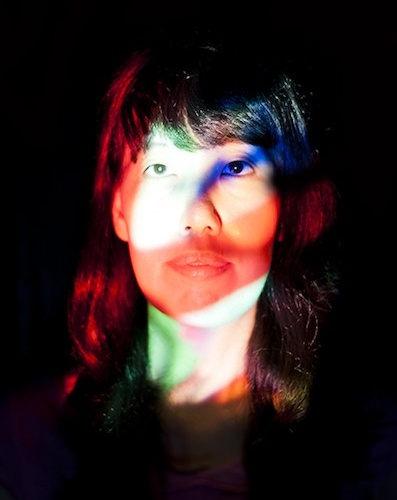Music Career Finder
Start Here:
Video Jockey

How To Become a Video Jockey
- Career Description
- Salary
- Career Outlook
- Career Path
- Experience & Skills
- Education & Training
- Additional Resources
- Sources
- References
Career Description
For many people, the term Video Jockey may initially conjure up memories of the ‘90s, when VJs hosted music video shows on MTV and VH1. These days, however, the term is used much more often to describe someone who creates videos and/or curates video playlists for live music events.
Mamiko Kushida, a New York City-based VJ, says “I spend a lot of time making video content to play at shows when I am not doing visuals [at events]. For example, I was asked to make video content for American pop star Ian Erix’s UK tour. The video was thirty minutes, which took a whole month to complete.” Clearly, a lot of behind-the-scenes work goes into creating even the very short videos broadcast on stage at concert tours.
She adds, “Though the VJ culture is garnering a reputation as a culture of its own, it has been a practice for many visual artists over the past decade or two — especially those who explore video as a medium — and these include Video Artists, Animators, and Motion Graphic Designers.
Although the roots of VJing are set deep within club culture, active and successful VJs are taking it out of the clubs and exploring VJing as a part of performance, such as for concerts, fashion shows, theatre, etc.”
Salary
The average annual salary for Video Jockeys is approximately $23,600. The salary range for Video Jockeys runs from $19,000 to $34,000.
The amount of income a VJ can earn varies widely and depends on the VJ, the artist he or she is working with, and what they want for their show. Kushida says, “I have set fees, but I normally discuss my fee with my clients.”
Hey, what do you think about trying our new Music Career HelperMusic Career Helper really quick? It’s totally free and could help get your career moving fast! Give it a try. It’s totally free and you have nothing to lose.
Career Outlook
About the work lifestyle of a VJ, Kushida says, “It’s very random. I sometimes wake up at 5:00 am to go to set up the stage for the daytime shows. On the other hand, I work from 9 pm to 6 am for DJ events at nightclubs.”
VJs work whenever bands or DJs have shows so nights and weekends are always busy. During the day, VJs catch up on sleep or work on making videos or creating video playlists. “It’s hard work so I just try to relax right before my VJ gigs,” Kushida says about how she uses her downtime.
Career Path
For a VJ, career advancement means performing and creating videos for more well-known artists who may have a bigger budget and the ability to book them on more dates. In turn, their reputation will increase and they’ll be able to charge more for their work. “not everyone does that nowadays because everyone wants to be famous and be on reality TV or whatever.”
Landing a VJing gig is a similar process to booking work as a Club DJ or band. It’s important to have samples of your work available, in this case, meaning a website with performance videos. Those just starting off in their careers can find opportunities by reaching out to up-and-coming bands, DJ nights, or other nightlife events.
- “Try to make video content for music that you like: not only one or two videos, but as many as you can.
- Try to collaborate any chance you get with your musician friends.”
- Reach out to friends or acquaintances in bands to see if they’d be interested in having you VJ one of their shows.
Experience & Skills
People skills are important for a VJ. Obviously, video making skills are also essential. Kushida suggests, “You should be good at working with clients. I used to work as a Graphic Designer at an advertising company. It helped me to understand clients’ needs. VJs are also for clients (musicians). You have to know what the musicians and audience want at shows.”
To be successful as a VJ, Kushida advises “you should be creative, curious, flexible, and have a good creative vision. Be physically fit; as a VJ I often work all night.” Due to the nature of their work, VJs must also have a deep passion for music and entertaining and be able to get along with all the different types of people involved in putting on the performance.
Education & Training
A VJ doesn’t necessarily need a college degree if they are able to take classes or teach themselves the essential skills for the work. However, many do come from an academic film, graphic design, or arts background.
In terms of the education required to be a VJ, Kushida says “I recommend Visual Art, Computer Graphics (Graphic Design, Motion Graphics, Animation), plus having knowledge of a wide range of music, from Classic to Electronic Dance Music.”
Additional Resources
“Even though I have been VJing for eleven years,” Kushida says, regarding professional groups or online resources, “VJing is still an untouched field. It’s difficult to find those organizations.” She adds, “I currently have VJ workshops for high school students. I wish more professional VJs worked with young people who want to be VJs.”
Sources

Mamiko Kushida
Mamiko Kushida is known as VJ Mamiko Kushida. She has been VJing for over a decade. She has VJed at Radio City Music Hall (NY), Tower Theater (Philadelphia), Paley Center for Media (NY), and Queens Theater (NY), to name just a few.
The Japanese Post Punk band ZZZ’s official music video “dystopia,” directed by Mamiko, was nominated for the Berlin Music Video Awards 2015 in Germany. She was nominated for Best Visual Artist at the Brooklyn Nightlife Awards 2014 in NY. She has done live visuals work for Easy Mo Bee and Frankie Knuckles and opened for New Order with the band ZRGT.
References
- 1. "Video Jockey Salaries in United States". Glassdoor.com. published: Dec 22, 2019. retrieved on: Jan 8, 2010